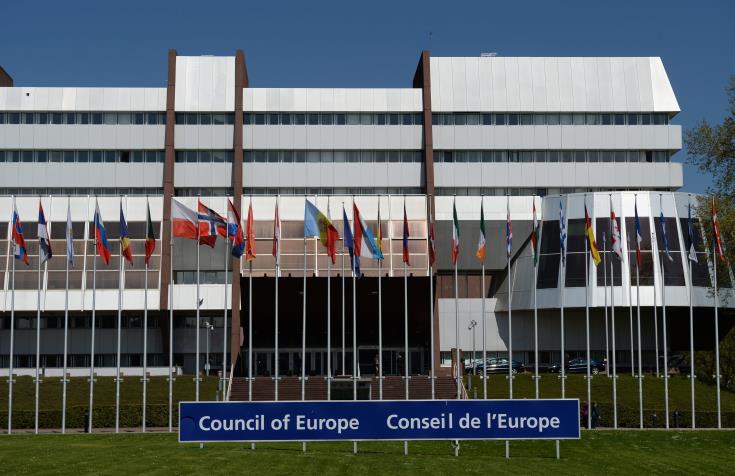A “general climate of tolerance” prevails in Cyprus, in particular towards the three constitutionally recognised national minorities: the Armenian, Maronite and Latin (Roman Catholic) religious groups, according to a report published today by the Council of Europe’s Advisory Committee on the Framework Convention for the Protection of National Minorities (FCNM).
Support to preserve minority identities continues to be provided, predominantly in the educational and cultural spheres, according to report findings, which are based on information obtained by the Advisory Committee from governmental and non-governmental interlocutors during its visit to Nicosia, Larnaca and Limassol in July last year.
Persons belonging to the Armenian, Maronite and Latin religious groups continue to have influence on policy making on subjects of relevance to them, essentially through their representatives in the House of Representatives, the report concludes.
Exercising the right to self-identification and effective consultation with religious and ethnic communities other than those officially recognised by the constitution remain “problematic” due to the constitutional set-up of the Republic of Cyprus. Nevertheless, the Advisory Committee welcomes that its recommendations from previous reports have been taken into account by the authorities to prepare the 2021 census questionnaire, which should lead to a more precise view on the diversity of Cypriot society.
Another positive development since previous reporting has been the increase in human and financial resources for the Ombudsperson’s Office and the possibility for this office to recruit staff according to its own criteria. These positive developments provide better conditions to ensure more timely examination and treatment of discrimination-related complaints.
Other positive developments include the codification of the Cypriot Maronite Arabic language and free-of-charge publications and multimedia materials for the general public dedicated to each of the three religious groups. The overall support to the cultural heritage of the three religious groups and their explicit mention in textbooks, as well as the creation of cultural centres for the Maronite and Latin religious groups are also welcomed in the report.
Despite such progress, more work is needed, according to the FCNM’s fifth state report on Cyprus.
For example, despite measures to improve living conditions and to end discrimination of the Roma population, Gurbeti Roma remain “socially and economically marginalised”.
The Advisory Committee is pleased that the Framework Convention is being applied on an-article-by-article basis to persons belonging to Roma who are not an officially recognised minority, with increased efforts by Cypriot authorities to “directly engage” with Roma representatives. But not enough improvement has been seen for their housing and employment. The classification of Cypriot Roma as being part of the Turkish Cypriot Community continues to have “negative implications” on their ability to access and enjoy certain rights.
Despite a comprehensive legal framework and existing data on hate crime and hate speech, the revision of the Police Code of Ethics, the publication of a Manual on Human Rights for the police, and human rights training programmes for police officers, the Advisory Committee regrets systematic gathering of disaggregated equality data is lacking. A proper evaluation of the performance of trained police officers also is needed to assess the effectiveness of such courses, according to the report.
Furthermore, while the Advisory Committee welcomes offers of radio programmes for religious groups, it notes a lack of similar TV programmes. Indeed, the current public media offer, both on radio and television, “falls short” of the needs of other religious and ethnic communities, including Roma, to voice their culture, traditions, and views, according to the report.
The report’s priority recommendations for the Cypriot authorities include the following:
– Develop, in close consultation with Roma representatives, organisations and other relevant civil society actors, a detailed action plan for the social inclusion of Roma and their overall participation in socio-economic life, with clear indicators, timetables, distribution of tasks and budgetary allocations, with a view to improving in particular their living and housing conditions and developing tailor-made training programmes to promote the employment of Roma.
– Implement the option of “multiple affiliation” in the 2021 census and ensure that relevant state officials and interviewees themselves are made aware of this option and that questions on ethnic and religious affiliation remain non-mandatory and open ended.
– Ensure that complaints related to discriminatory treatment, including those submitted by, or on behalf of, persons belonging to religious and ethnic communities, are examined and dealt with by the Ombudsperson’s Office in a reasonable time, inter alia through ex officio investigations conducted within its mandate, and that decisions are enforced by the public authorities
– Further increase financial support for teacher training in Armenian and Cypriot Maronite Arabic and urge the authorities to support the teaching of Armenian at upper secondary level and to consider creating a department for the Armenian language at university.
The Opinion of the Advisory Committee on Cyprus has been published today together with the government comments.






